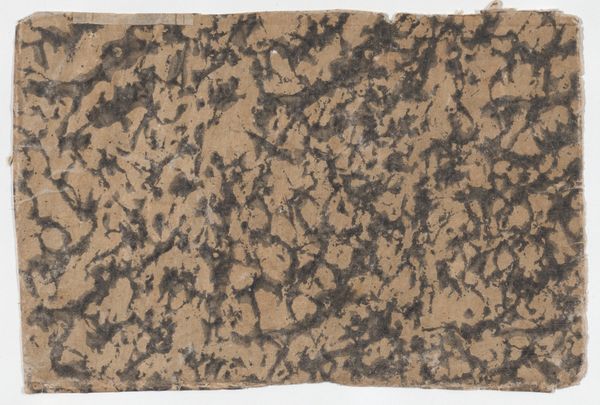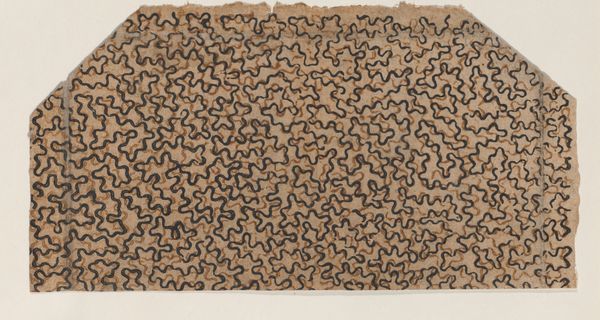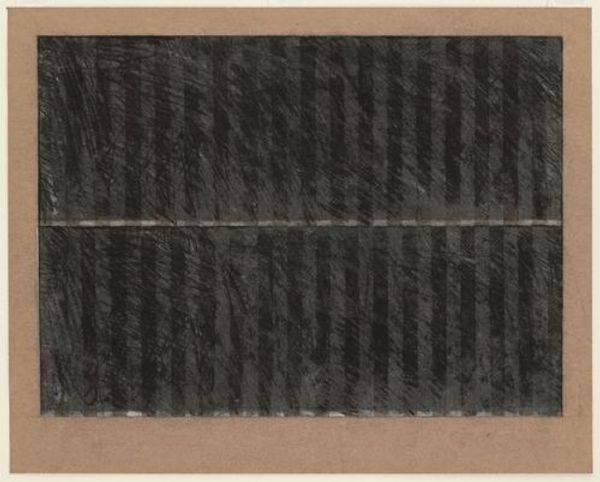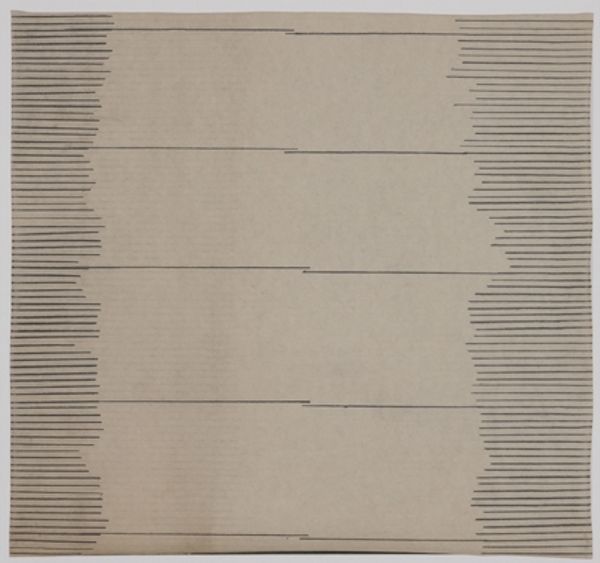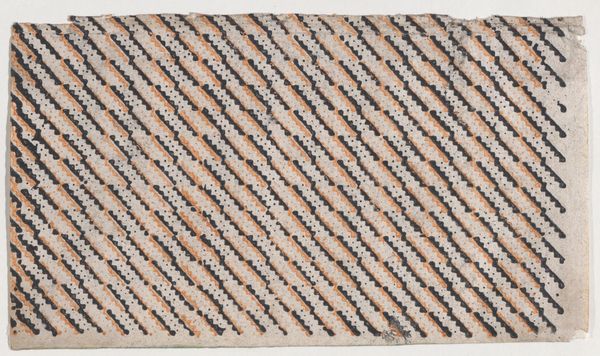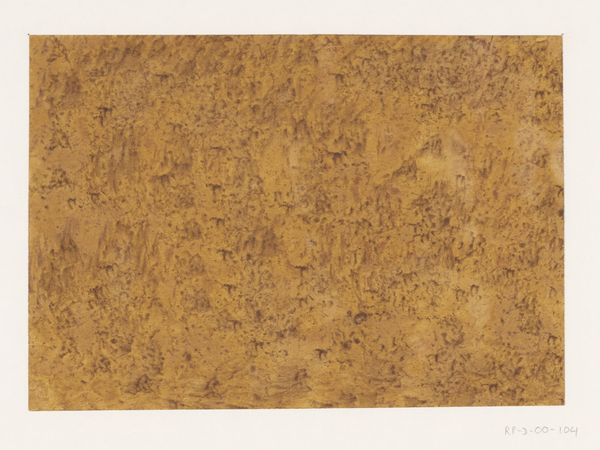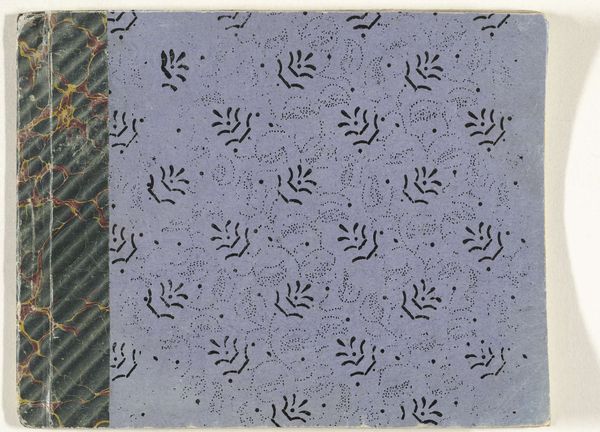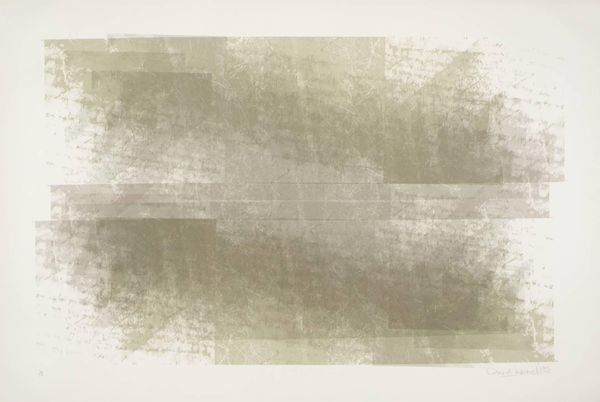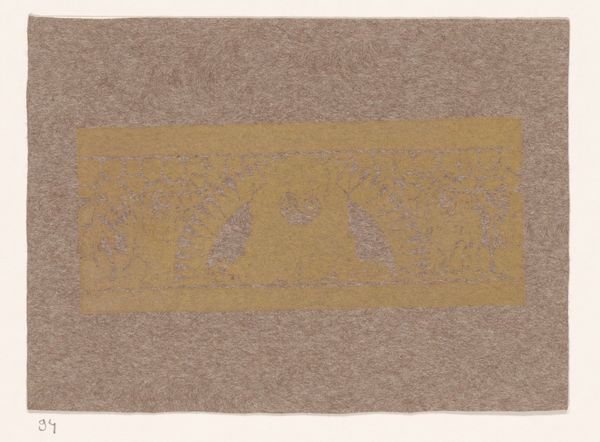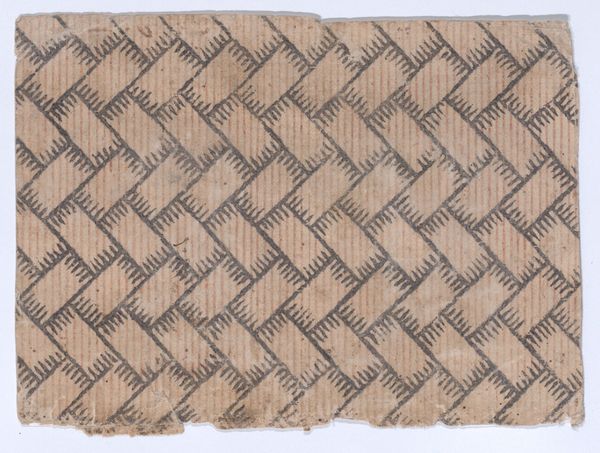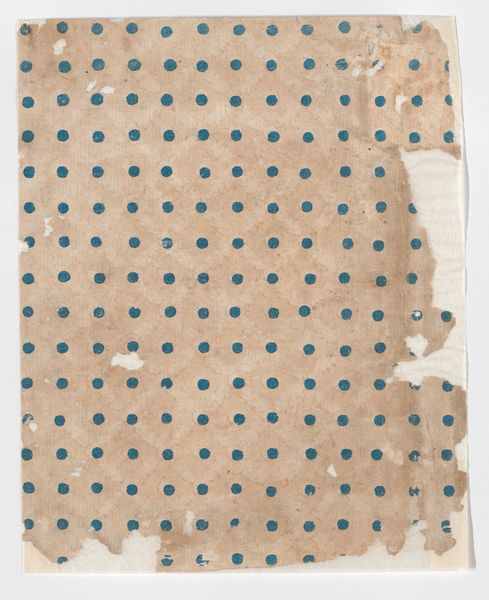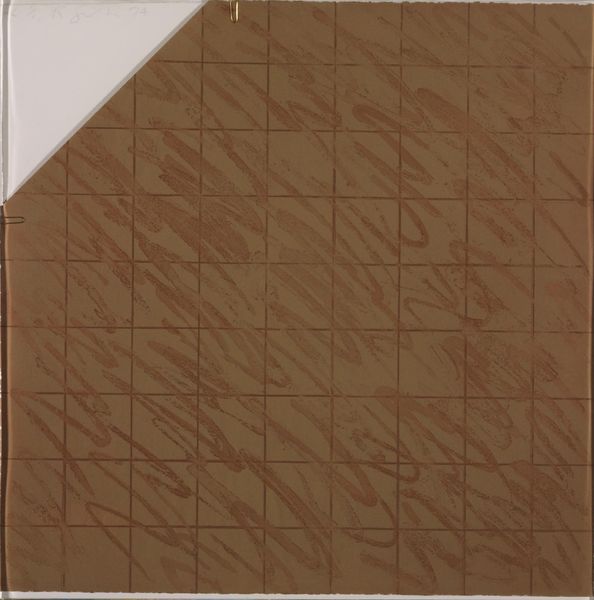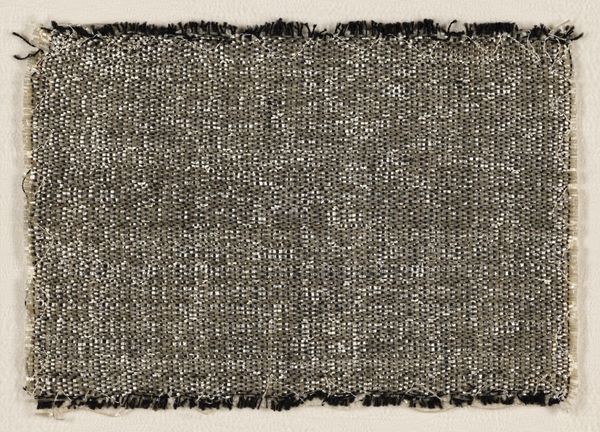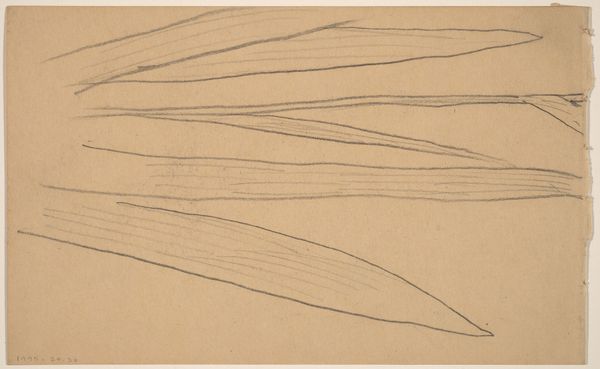![Global Village 1-36 [bottom] by John Cage](/_next/image?url=https%3A%2F%2Fd2w8kbdekdi1gv.cloudfront.net%2FeyJidWNrZXQiOiAiYXJ0ZXJhLWltYWdlcy1idWNrZXQiLCAia2V5IjogImFydHdvcmtzLzBmYWE4NWZlLTU1OTItNDEzZS1iOGM2LTExMzdhMGJmNzUxOS8wZmFhODVmZS01NTkyLTQxM2UtYjhjNi0xMTM3YTBiZjc1MTlfZnVsbC5qcGciLCAiZWRpdHMiOiB7InJlc2l6ZSI6IHsid2lkdGgiOiAxOTIwLCAiaGVpZ2h0IjogMTkyMCwgImZpdCI6ICJpbnNpZGUifX19&w=3840&q=75)
#
photo of handprinted image
#
natural stone pattern
#
rippled sketch texture
# print
#
organic shape
#
grainy texture
#
chalky texture
#
carved into stone
#
organic pattern
#
black-mountain-college
#
imprinted textile
#
organic texture
Dimensions: sheet: 48.9 x 67.3 cm (19 1/4 x 26 1/2 in.) overall size: 97.8 x 66.7 cm (38 1/2 x 26 1/4 in.)
Copyright: National Gallery of Art: CC0 1.0
Editor: So this is *Global Village 1-36 [bottom]* by John Cage, created in 1989. It's a print. There's something about the rhythmic, almost scattered arrangement of lines that feels very calming. How do you interpret this work? Curator: Calming is an interesting word for it. To me, the beauty of Cage’s work always lies in his acceptance of chance. Notice how those marks are placed. They're a little like falling rain, but also barcodes. It hints at systems and patterns but it's simultaneously quite free form. Does that tension speak to you at all? Editor: I see what you mean, I hadn't considered that sense of "pattern recognition gone rogue." The “falling rain” feel gives it an almost musicality. Considering Cage’s well known experiments in music, I'm wondering, do you think the lines maybe symbolize notes? Curator: Oh, absolutely. Everything was music to Cage. And silence too. He was all about exploring sound—and anti-sound—in unconventional ways. Thinking about chance operations in art… how might Cage have gone about placing the lines on this print? Editor: Maybe he used dice rolls, like he sometimes did with musical composition? Or some kind of random number generator related to the I Ching... I know he was deeply influenced by Eastern philosophies. Curator: Exactly! You’ve got it. Cage was interested in surrendering control, letting go, and allowing things to be what they are. Isn't it fascinating how a set of randomly placed lines can still evoke such a mood? Editor: Absolutely. It makes you question how much intention is needed to create something meaningful. Curator: Indeed. Cage encourages us to listen more closely to the world around us, and in turn, to art. Chance favors the prepared mind, wouldn't you agree?
Comments
No comments
Be the first to comment and join the conversation on the ultimate creative platform.
